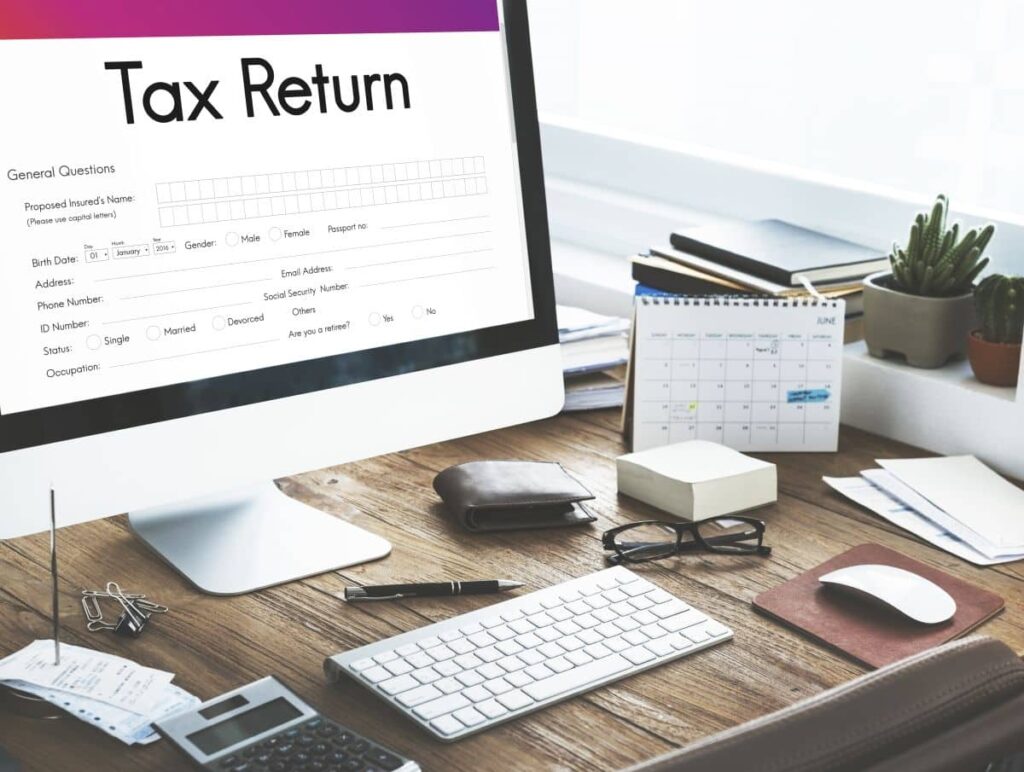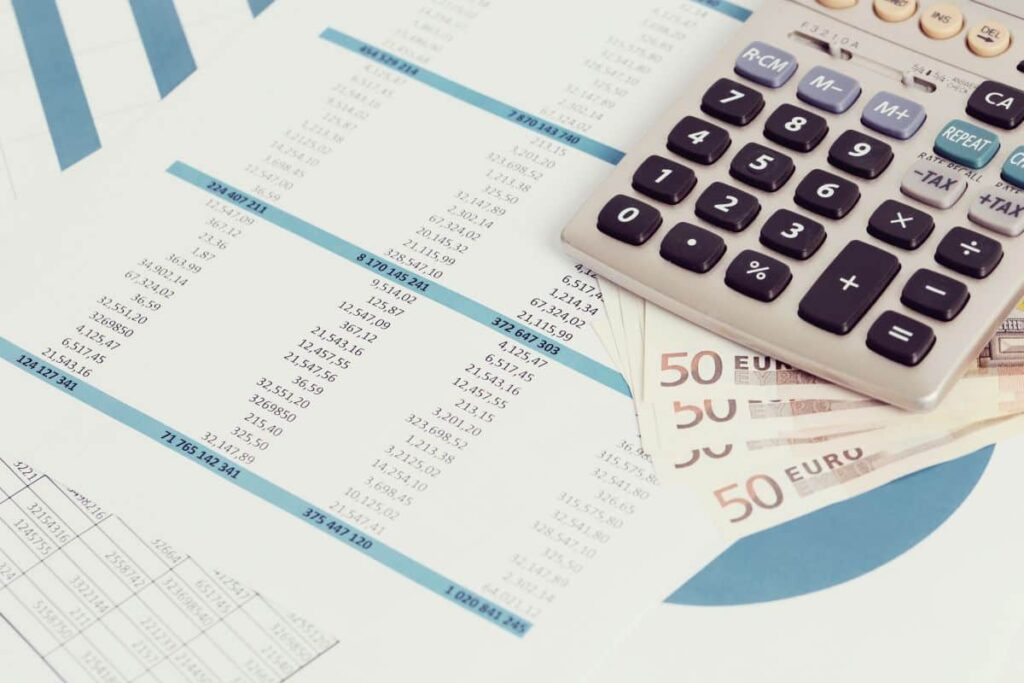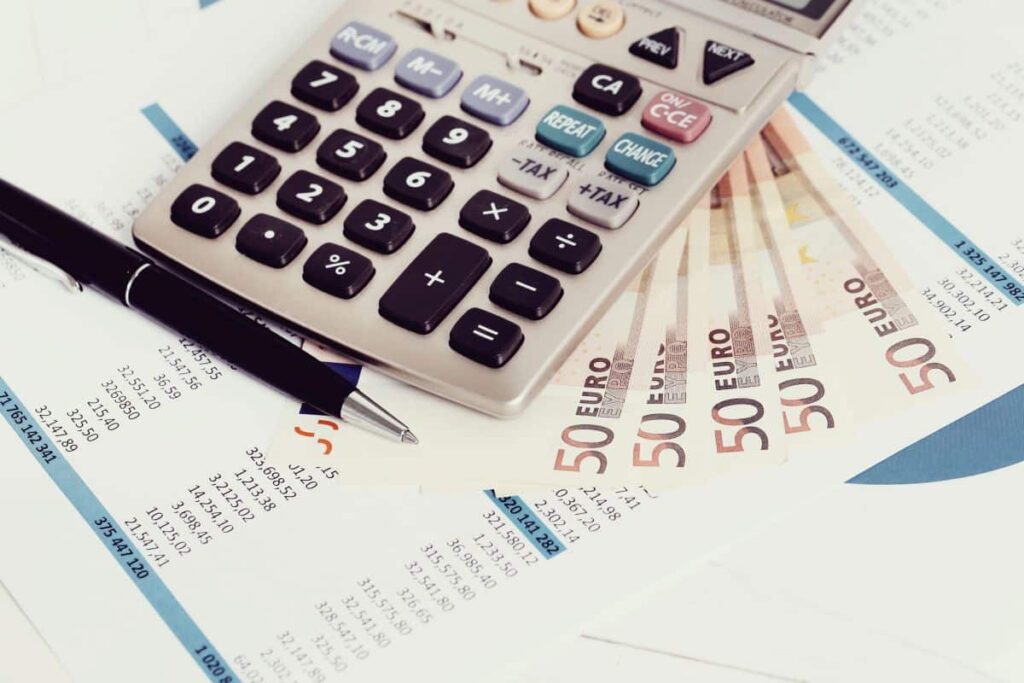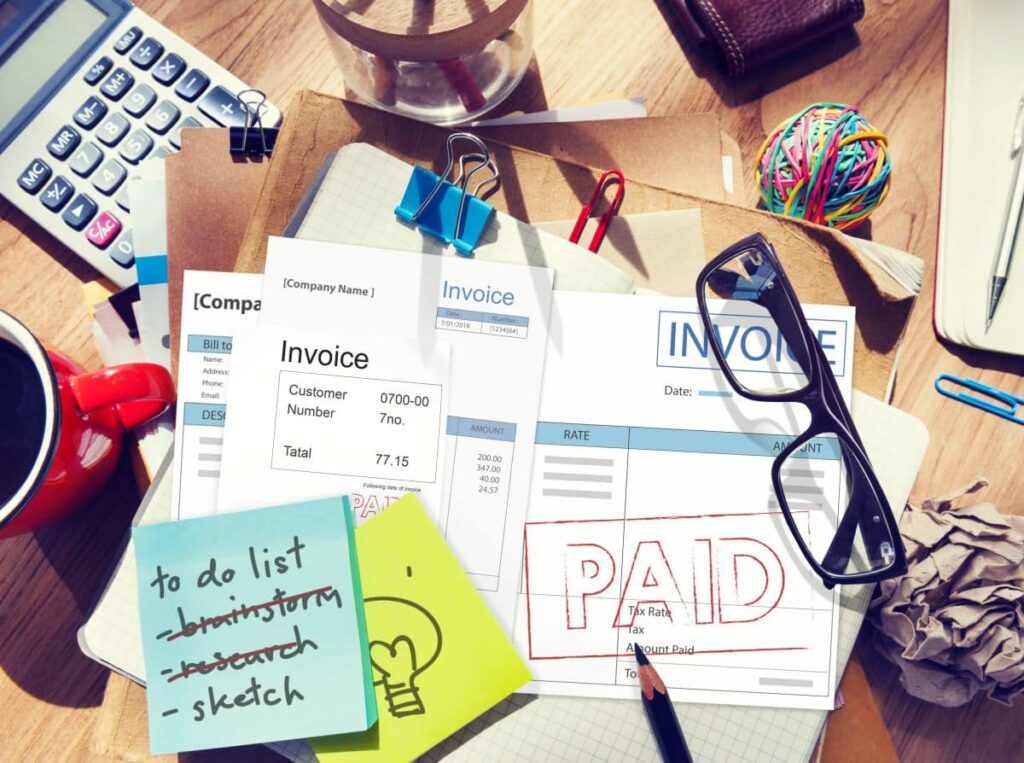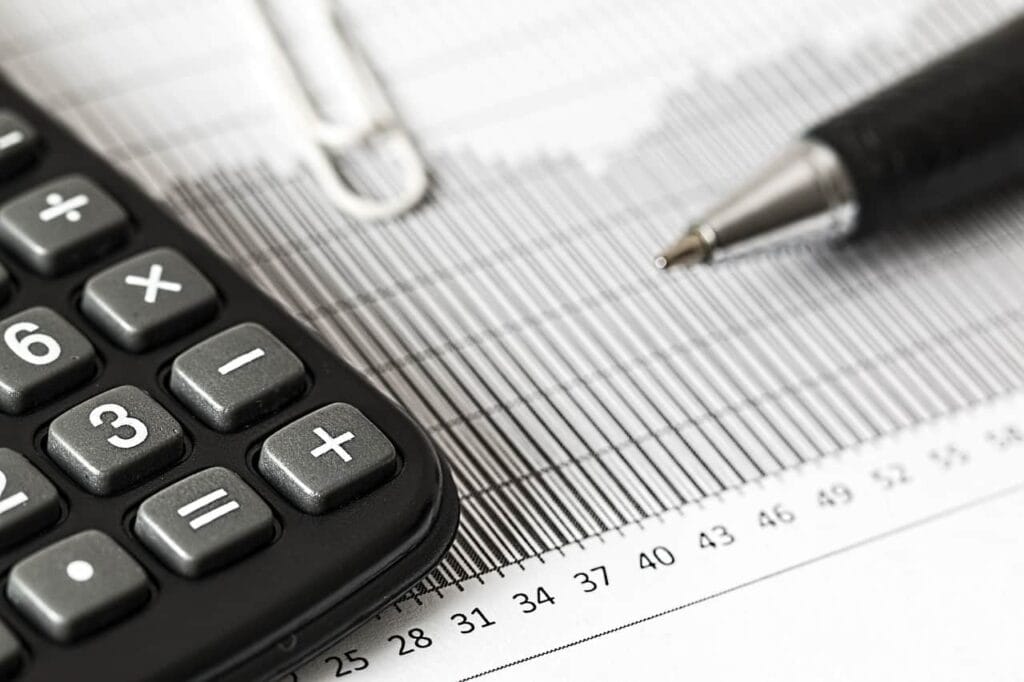Are you the proud owner of a rental property? If so, it pays to ensure that you are taking advantage of all the applicable deductions on your taxes. From depreciation and mortgage interest deductions to repairs and insurance costs, there are several items that could potentially result in substantial savings at tax time — if claimed correctly.
This blog post provides an overview of these deductions as well as helpful tips for making sure they are properly calculated when preparing your return. So whether this is your first year owning a rental property or you've been an experienced landlord for years, keep reading to learn more about claiming rental property deductions!
Let's get started!
Investing for Tax Deductions
Investing in real estate typically has a lower level of risk than other types of investments and provides the investor with more opportunities for gain. When compared to other types of investments, like shares, the level of volatility is lower. If there is a tenant living in the property, rental income is reliable. Properties have the potential to appreciate in value, which might result in a profit from the sale of the property if it is done so.
Let us consider that investing in real estate might provide you with favourable tax deductions. For example, if you rent out your home or unit, you can offset a significant portion of the costs associated with owning it with the revenue it brings in. Among these costs is the interest that must be paid on any loans that were used to finance the acquisition of the property.
It's possible that a large number of Australians are aware of this benefit due to the fact that approximately one-third of home loans in the country are used for investment purposes.
However, the question is whether you will be subject to taxes. If so, how does it work? You will most certainly be subject to taxation, to answer your question in a nutshell. Your income from your rental property is exactly the same as any other regular income.
You can expect the Australian Taxation Office to pursue you and demand that you fulfil the responsibilities that come with being a resident. Because of this, you have to mentally prepare yourself for the likelihood that you will have to give up some of the money you make from your rentals.
The excellent thing is the following, however. If you are a shrewd investor, you can spare yourself a lot of headaches by being aware of what is and is not subject to taxation. At tax time, you must make sure you have all of the relevant information at your disposal because investment properties are subject to a very varied set of regulations.
What Is Rental Income For Tax Purposes?
The cash you make from renting out your home, whether it's just a portion of it or the whole thing, is considered taxable income by the ATO. In a nutshell, it is taxed at the rate that corresponds to your marginal tax bracket. As a result, you are obligated to make the disclosure when it comes time to prepare your tax return.
Take into consideration that the tax rates apply. You are exempt from paying taxes if you make less than $18,200 per year. If it is greater than a dollar, nevertheless, you will be required to pay 19 cents for each additional dollar up to a maximum of $37,000. When the income is higher, the tax rate increases.
Let's imagine that your annual income, before taking into account any taxes, comes to $80,000. You now have a total of $100,000, which includes the $20,000 in rental revenue you receive (again, this is before taxes).
For this particular year, you are projected to have a tax liability of around $24,497, presuming that no adjustments are made to your situation. This is because you fall into the income bracket of $90,001 to $180,000, which is subject to a tax of $20,797 in addition to 37 cents for every dollar over $90000.
It is important to keep in mind that any other investment returns you might well have should also be included in your taxable income. They include realised gains and dividends that come from shares, as well as interest that you received from your term deposit or savings account. Also included are profits and dividends that come from other investments.
In light of the preceding illustration, the explanation is very straightforward. When it comes to taxes on rental income, nevertheless, there are a great many more considerations to take into account. It is not solely determined by the amount of money you bring in during a specific accounting period. It would be best if you took into account deductions as well.
What You Need To Know About Deductions?
If you file your tax return in a timely manner, you are aware of the deductions that can reduce the amount of tax that you owe on your expenditures. The Australian Taxation Office (ATO) states that taxpayers have the legal right to deduct investment-related expenditures from their taxable income.
Nevertheless, there are certain guidelines that must be followed. The fact that the expenses should be applied to the portions of the house that make up the investment property is the single most important consideration.
The following are examples of expenditures that may be reimbursed:
- Maintenance costs
- Management costs
- Borrowing expenses
- Depreciation
On the other hand, you are not allowed to make deduction claims for costs that you did not personally pay for yourself out of your own pocket. For instance, your renters paid the utility bills, made repairs, or contributed to the upkeep of your property.

Nevertheless, you are allowed to make a claim for a deduction in relation to the following management and upkeep expenditures:
- Amounts paid for advertisements in order to locate potential new renters
- Costs and expenses associated with banking and lending transactions
- Expenses for cleaning, local taxes, and any other pertinent charges
- Gas and electricity for which you are responsible for paying the bill.
- Legal expenditures
- Tax on land
- Insurance coverage for the home and all of its belongings
- Property management expenses, plus commisions, if applicable
- When collecting rent or doing other chores, such as inspections, travel and vehicle expenditures are incurred.
You also have the option to submit a claim for any costs associated with repairs.
The interest that you are currently paying on your investment property mortgage is considered a deductible business expense under the tax code. Be mindful, nevertheless, that when calculating your deduction, the principal amount will not be taken into account in any way. Other fees associated with borrowing are covered, including those for
- Lookup of titles
- Development of a loan
- Lenders mortgage insurance
- Only if it is included in the mortgage payment is stamp duty payable.
- Mortgage broker payments
Losses incurred due to depreciation might also be claimed. They apply to recently bought things whose value decreases over time and can be claimed as a tax deduction. A few examples of this would be the blinds and rugs, as well as the water systems and appliances.
When you own an investment property, you will notice that there are a lot of deductions you are able to claim, which implies that you may save a lot of money doing so. When you submit your tax return, you must not, under any circumstances, forget about them.
Best Practices for Accurately Calculating Tax Deductions Related to Rental Properties
According to the Australian Taxation Office (ATO), improper claims for rental property expenses are the most prevalent reason tax returns need to be amended. However, when it comes to claiming deductions for your rental property, there are a few things you need to be conscious of in order to do it correctly. Here is a list of those items.
1. Distributing Rental Income And Costs Across Partners Or Owners
You are required to report income from a rental property and deduct expenditures in accordance with your percentage of legal ownership of the property if you share ownership of the property with another person, such as a spouse. For example, if you are tenants in common, rather than joint tenants, you might each have a unique ownership stake in the property, but if you are joint tenants, your legal interest will be divided equally.
It is crucial to remember that any arrangement that the proprietors of a property held in joint tenancy may draw to split the earnings and expenses into amounts other than equal shares has no effect for income tax reasons. This is something that should be kept in mind.
A good property advisor keeps up with local zoning laws and development plans, which can impact property value
2. The Process of Claiming and Distributing Interest on the Private Portions of Loans
Buy a rental property with the assistance of a loan or mortgage. You may be eligible to deduct the interest paid on that loan, or a part of the interest, as a business expense related to the rental property.
When a loan is acquired or revised to encompass the acquisition of both a rental property and, for example, a private car, boat, or holiday, the interest on the loan should always be divided up into deductible and non-deductible parts. This is required in the event that a loan is acquired to encompass the buying of both a rental property and an example of a private car, boat, or holiday.
3. Taking Credit For The Appropriate Amount Of Your Expenses
If a part of your property is rented out to generate income or if you only rent out the real estate for a part of the year (perhaps you utilise it as a vacation home for the other part of the year), you are required to divide up your costs so that they are directly proportionate to the proportional region of the estate or the number of days that the estate was rented out.
Your capacity to claim expenses related to a rental property is contingent on whether or not the property is actually available for rent, whether or not you use the property for your own personal use, or whether or not you rent to members of your immediate family or close friends at rates lower than the going market rate.
Vacation houses might have their tax deductions decreased if they are rented out to close relatives and friends for an amount that is lower than the home's fair market value. Real attempts must be made to rent the vacation house to ensure the Australian Taxation Office (ATO) validates any claims for rental property deductions.
4. Your Property Needs To Be Legitimately Available On The Rental Market
If you want to be prepared to take advantage of the tax benefits that come with renting out your property, it needs to be truly accessible for rent. This indicates that
- It would be best if you prove that you have every intention of renting the property.
- publicising the property to increase the likelihood that someone will rent it and setting the rent at a level that is comparable to that of other properties in the region
- avoiding unreasonable rental conditions.
5. Repairs & Maintenance vs Capital Works
Ongoing repairs that are directly related to wear and tear or other problems that occurred while the property was being rented out are eligible to be deducted in their entirety in the same year that the owner incurred them. For instance, it is possible to instantly deduct the cost of restoring a portion of a destroyed roof or the hot water system.
Initial repairs for damage that already existed when the property was purchased, like repairing broken light fittings and fixing broken floorboards, aren't really instantly deductible; however, a deduction might well be claimed over the course of several years as a capital works deduction for these types of repairs. When you sell the property, these costs are also factored into the calculation of the capital gain or loss you will realise.
Remodelling a bathroom or replacing an entire structure, such as a roof, even if only a portion of that structure is broken, are examples of improvements that do not qualify for an instant tax deduction. However, these are the building expenses that you can deduct at a rate of 2.5% per year for a period of 40 years beginning on the day when the construction is finished.
Suppose you entirely restore a broken item that is removable from the house and costs more than $300 (for example, rebuilding the entire hot water system). In that case, the price of the replacement needs to be depreciated over the course of a number of years.
Maximise Tax Deductions On Your Investment Property
1. Claim Depreciation To Maximise Returns
Depreciation deductions could be claimed for an amount as high as tens of thousands of dollars for any investment property that produces a profit. In point of fact, the majority of investors are eligible for an average deduction of between $5,000 and $10,000 in just the first full financial year.
Because it is a non-cash deduction, which means that the investor doesn't have to make a financial investment in order to claim it, property depreciation is frequently overlooked. In fact, studies have shown that eighty per cent of those who invest in real estate do not take advantage of the depreciation deductions to which they are entitled.
2. Declaring Rental Income And Expenses
Are there some deductions that you should be claiming but aren't? For example, the ATO classifies income from rentals as taxable income; nevertheless, you may deduct certain expenditures in order to lower this amount, including the following:
- Property management fees and maintenance costs
- Property depreciation
- Bank fees and loan charges
- Insurances
- Legal costs and land tax
3. Claim Correctly For Repairs And Renovations
There is a distinction to be made between an improvement to capital works and a repair, which will impact your claim. In the same fiscal year that the repairs are finished, you are eligible to make a claim for the total amount that they cost. On the other hand, one should depreciate the value of an upgrade or refurbishment over the course of time.
Suppose you made any changes to your property during the previous fiscal year. In that case, it is highly recommended that you obtain the guidance of a Quantity Surveyor to guarantee that these upgrades are included in your claim correctly.
Eighty per cent of people who invest in real estate need to take advantage of the depreciation deductions to which they are entitled.
4. Use A Split Report To Increase Deductions
Do you have joint ownership of a property? When this occurs, it is typically in every owner's best interest to order a split report in order to maximise the rewards on their investment. Therefore, it is crucial for accountants to propose that their clients obtain a split report in order to verify that their customers who co-own investment properties are maximising the deductions available to them.
5. Amend Previous Returns
Investors have the ability to revise their tax returns for the two most recent years in order to claim any deductions that they may have overlooked.
Instead of attempting to navigate the complexities of taxation on your own, it is highly recommended that you assemble a knowledgeable team that includes a Quantity Surveyor, a Property Strategist, and an Accountant with prior experience working with real estate investments.
What About Land and Property Taxes?
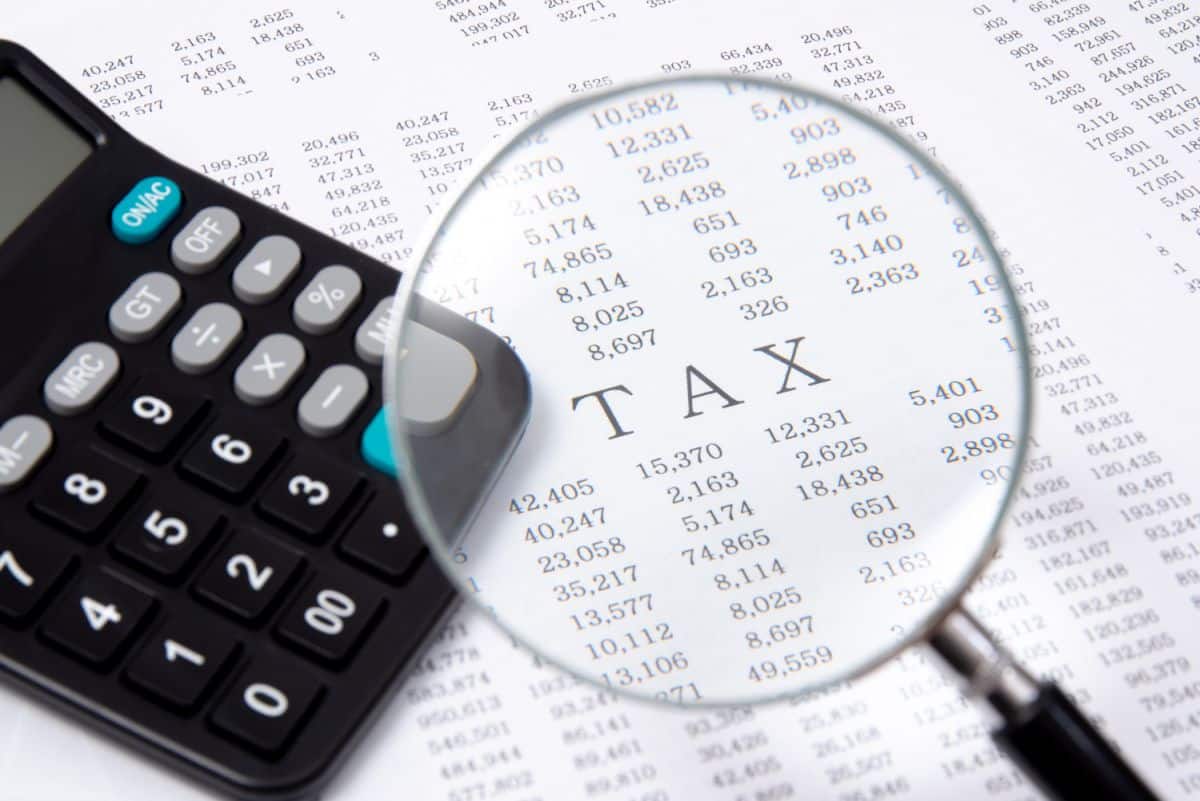
Property taxes and council rates are the sources of funding for various local government projects, such as garbage collection and maintenance of public spaces. The value of your property, in addition to your location, determines the tax rate that applies to you.
On the other hand, land taxes are obligatory for everyone, with the exception of residents of the Northern Territory. It is determined by combining the value of the land you currently own with an estimate of what the land would be worth if you did not inhabit it. This category of taxes can also be deducted as an expense related to the investment property you own.
What About Capital Gains?
When you sell a capital item, such as a piece of property, you either make a gain or a loss on the sale of that asset. When you sell the property for a price that is more than what you paid for it initially, this results in a capital gain for you. The reverse of a capital gain is a capital loss.
The tax that you are responsible for paying because of the profits that were made from the investment is known as the capital gains tax. Therefore, the gain on your investment will be included in your assessable income, which functions in the same manner as your rental income does. Therefore, it has the potential to substantially raise the amount of income that is subject to taxation.
The ATO states that you are given up to five years from the time that you received deductible payments or rental revenue to file a tax return and claim the associated income. You really are only permitted to make a claim for an item if you have evidence of the expenditure in some form, like a receipt or a bank statement. As a result, it is important to maintain those documents, regardless of whether they are stored in digital or physical format.
Frequently Asked Questions
- Claim depreciation to maximise returns. Any investment property that generates income may be eligible for thousands of dollars in depreciation deductions. ...
- Declaring rental income and expenses. ...
- Claim correctly for repairs and renovations.
Interest payments and holding costs
Property investors typically claim interest charged through a mortgage on a rental property as a tax deduction. Other common tax deductions include management costs (like property agent fees), land tax, and maintenance costs (like cleaning, gardening, insurance and repairs).


